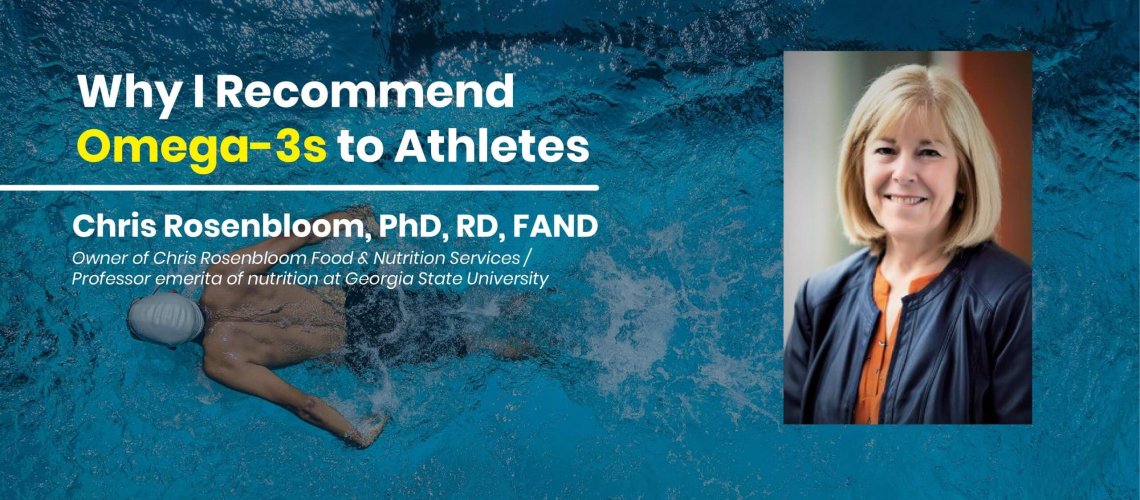Only 5% of the US population consume the recommended amount of omega-3 fatty acids. We are woefully short on these important fats because most of us don’t eat the recommended two servings (8 total ounces) of seafood each week, particularly fatty fish like salmon, trout, herring, and mackerel.
The three main omega-3 fatty acids are abbreviated as EPA, DHA, and ALA. Our bodies need all three but most of the research supporting the health and performance benefits for omega-3s is from EPA and DHA.
- ALA is found in plants such as walnuts, flax seeds, chia seeds.
- EPA and DHA come from marine sources: fish, other seafood, and algae.
Much of the research on EPA and DHA supports a benefit for heart health, but there are also clear benefits for brain and eye health because omega-3s are an essential part of membrane function in the brain and the eyes.
Research with athletes demonstrates a role of omega-3s in blood circulation, heart rate, lung function, reduced post-exercise muscle soreness, and improved recovery from training.
How do we get the recommended 250-500 mg of EPA + DHA each day? Through these three ways:
- Eat fatty fish
- Take omega 3 supplements
- Use fortified foods
Unfortunately, most athletes do not eat enough seafood, omega-3 supplements can leave a fishy aftertaste, and most fortified foods, such as eggs or margarines contain only small amounts of omega-3s. Not surprisingly, research shows that most athletes have suboptimal levels of omega-3s in their bodies. That is why I recommend ENHANCED RECOVERY Sports Recovery Drink to athletes who train hard. One 8-oz carton contains 1600 mg of omega-3s (820mg DHA, 550mg EPA, 230mg ALA) along with other nutrients needed to enhance recovery and promote the training adaptations needed for improved performance.
References:
Bernasconi AA, et. Effect of omega-3 dosage on cardiovascular outcomes. Mayo Clinic Proceedings. 2020; In press. DOI:https://doi.org/10.1016/j.mayocp.2020.08.034
Peoples GE, et al. Fish oil reduces heart rate and oxygen consumption during exercise. J Cardiovasc Pharmacol 2008;52(6):540-547.
Buckley JD, et al. Effects of omega-3 polyunsaturated fatty acids on cardiovascular risk, exercise performance and recovery in Australian Football League players. Asia Pac J Clin Nutr 2005;14:S57.
Tartibian B, Maleki BH, Abbasi A. The effects of omega-3 supplementation on pulmonary function of young wrestlers during intensive training. J Science and Medicine in Sport 2010;13:281-286.
Mickleborough TD, et al. Fish oil supplementation reduces severity of exercise-induced bronchoconstrition in elite athletes. Am J Resp Clin Care Med 2003;168:1181-1189.
Black KE, et al. Adding omega-3 fatty acids to a protein-based supplement during pre-season training results in reduced muscle soreness and the better maintenance of explosive power in professional Rugby Union players. Eur J Sport Sci 2018;9:1-11.
Corder KE, et al. Effects of short-term docosahexaenoic acid supplementation on markers of inflammation after eccentric strength exercise in women. J Sports Sci Med 2016;15(1)
Ritz PP, Rogers MB, Zabinsky JS, et al. Dietary and biological assessment of the omega-3 status of collegiate athletes: a cross-sectional analysis. PloS one. 2020;15(4):1-16.
